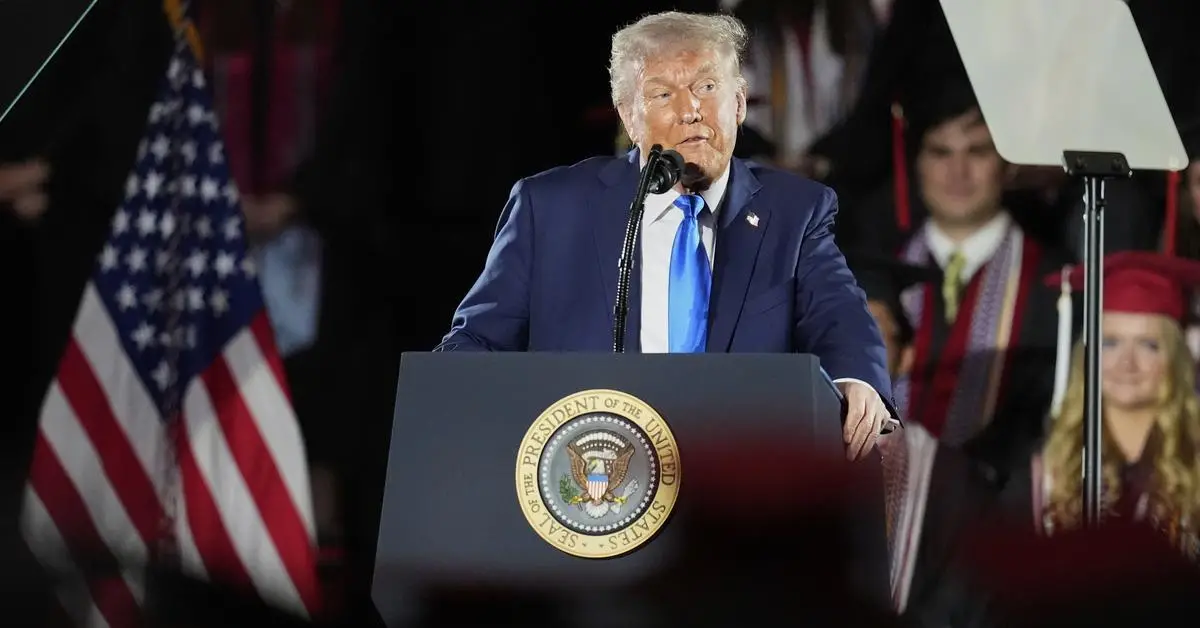A federal judge has ruled against a Republican judge’s attempt to cancel thousands of absentee ballots in North Carolina’s 2024 Supreme Court race. This decision protects the votes of military members, overseas citizens, and others who followed the rules while voting.
The case centers around Republican Judge Jefferson Griffin, who lost the election to Democratic Justice Allison Riggs by just 734 votes. Gryphon tried to get tens of thousands of votes thrown out, claiming that many of them were invalid. But on Monday, federal District Judge Richard Myers made it clear that changing the rules after an election is not allowed under the Constitution.
Judge Says All Legal Votes Must Be Counted
In his 68-page ruling, Judge Myers said that the North Carolina State Board of Elections must certify the election results as they currently stand. That means Riggs keeps her seat on the Supreme Court. The judge also stayed his order for seven days, giving Griffin time to appeal.
Riggs welcomed the court’s decision, calling it a win for democracy.
“Today, we won,” she said in a statement. “I’m proud to continue upholding the Constitution and the rule of law as North Carolina’s Supreme Court Justice.”
Griffin’s challenge focused on more than 60,000 ballots, but Judge Myers said those votes were legally cast and should not be thrown out.
What Kind of Votes Did Griffin Challenge?
Griffin questioned the eligibility of voters in three main categories:
1. Missing ID Numbers in Voter Registration
Griffin said that over 60,000 voters were not properly registered because they didn’t provide the last four digits of their Social Security number or a driver’s license number. However, many voters later proved that they did submit these numbers. The information simply didn’t appear in the official database due to typos or system errors.
The North Carolina Supreme Court majority ruled that these votes were valid and should be counted.
2. Military and Overseas Voters Without Photo ID
Griffin also tried to throw out absentee ballots from military and overseas voters, especially from Democratic-leaning counties. He argued that these voters didn’t submit photo identification with their ballots. But the State Board of Elections did not require photo ID for these absentee voters.
Later, the state Supreme Court said these voters should submit a photo within 30 days to “cure” their ballots. But Judge Myers disagreed with this change.
He ruled that changing rules after the election and requiring extra steps from only some voters violates the U.S. Constitution, specifically the Equal Protection Clause and Due Process Clause.
“Overseas military and civilian voters followed the rules as they existed at the time of the election, but the retroactive change in voting procedure deprives them of their fundamental right to have their votes counted,” Judge Myers wrote.
“Requiring voters in one county to do more than those in another is a violation of constitutional rights.”
3. “Never Residents” Votes
Griffin also questioned votes from people he called “never residents” — individuals who had never physically lived in North Carolina but had a legal connection through their parents.

The state has counted votes from such individuals for years without issue, but Griffin wanted to disqualify them. Investigations later revealed that some of these voters actually do live in the state. Still, Griffin argued that they should not even be allowed to prove their residency before their votes were rejected.
Judge Myers ruled that the state can limit voting to actual residents, but it must also give people a chance to prove they are eligible.
“The court finds that post-election ballot disqualification for individuals erroneously designated as Never Residents constitutes a substantial burden on the right to vote,” Myers wrote.
Court Says Election Rules Cannot Be Changed After Voting
Judge Myers strongly emphasized that states cannot change election rules after voters have already cast their ballots.
“This case concerns whether the federal Constitution permits a state to alter the rules of an election after the fact and apply those changes retroactively to only a select group of voters,” Myers wrote.
“To this court, the answer to each of those questions is ‘no.’”
This ruling reinforces a key principle in U.S. democracy: election rules must be clear and consistent before people vote — not changed afterward to benefit a particular candidate or party.
Political Timing of the Ruling
The timing of this ruling is important. It came exactly six months after the November 5, 2024 election, and just days before the State Board of Elections holds its first meeting under new Republican leadership.
Earlier, the governor appointed the board’s members, with the governor’s party getting the majority. However, a new law passed by Republicans took that power away from the governor and gave it to the State Auditor. This change now gives Republicans control over the Board of Elections.
Governor Josh Stein, a Democrat, is challenging this law in court. He also opposed Griffin’s attempts to throw out valid votes.
Despite the new board majority, the previous Democratic-led board had already resisted Griffin’s efforts, saying that voters who followed the rules should not be punished.
What Happens Now?
Unless Griffin’s appeal is successful, Justice Allison Riggs will continue in her role on the North Carolina Supreme Court. The ruling sends a strong message: legal votes must be respected, and post-election rule changes are not acceptable.
It also protects military and overseas voters, many of whom face unique challenges when voting but still took the time to participate in the democratic process.
This case may have started as a legal dispute between two judges, but in the end, it became about something much bigger — the right of every citizen to have their vote counted fairly.
And for now, the federal courts have made it clear: changing the rules after the game is over is not an option.
Disclaimer: This article has been meticulously fact-checked by our team to ensure accuracy and uphold transparency. We strive to deliver trustworthy and dependable content to our readers.




